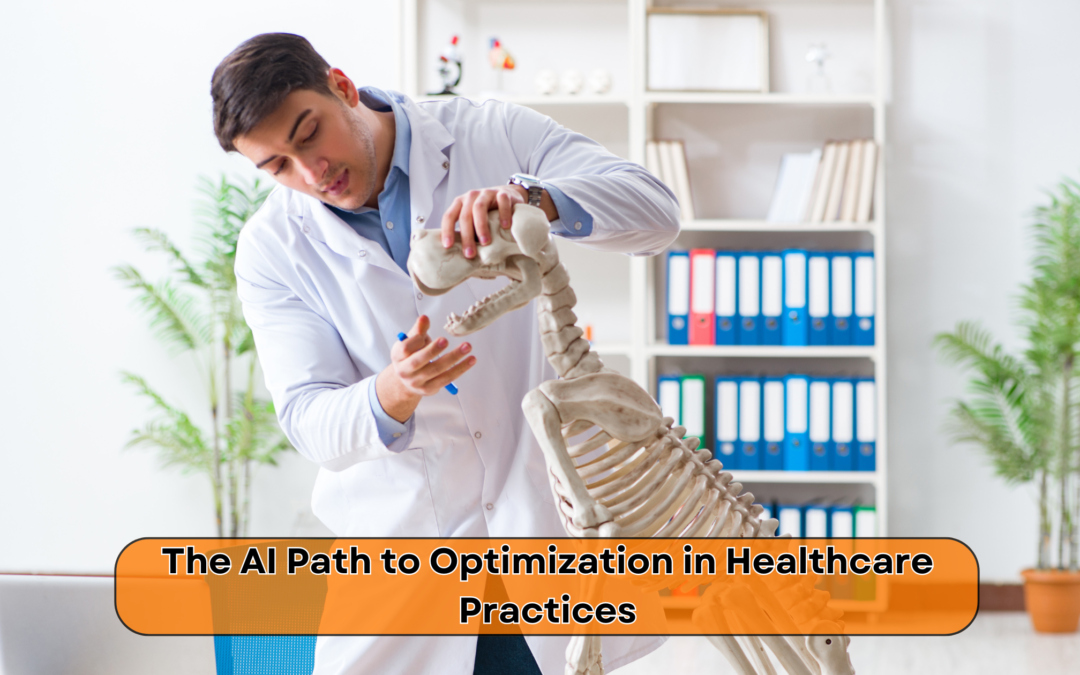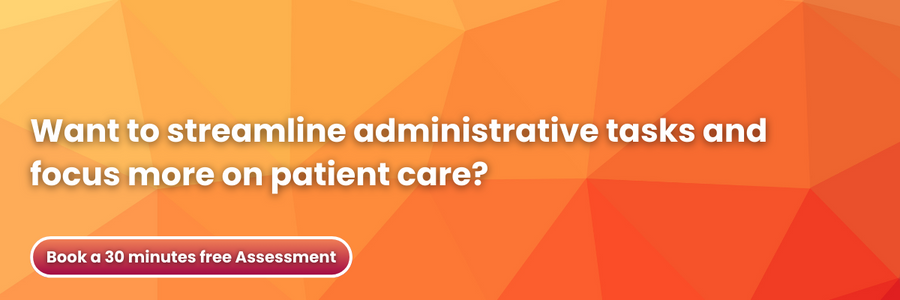Medically Reviewed: Dr Alex Evans
Image Credit: Google
Key Takeaways
- AI enhances efficiency in healthcare practices by automating administrative tasks, allowing providers to focus more on patient care.
- Improved diagnostic accuracy through AI helps in identifying conditions earlier and with greater precision, leading to better patient outcomes.
- Personalized patient care is achievable with AI, as it can analyze vast amounts of data to support tailored treatment plans for individual patients.
Introduction
In an era where the influence of technology has become unavoidable in all sectors of life, healthcare, practitioners across the globe are turning to artificial intelligence (AI) to enhance patient care, streamline operations, and optimize overall practice efficiency. Companies like MarkiTech are at the forefront of this revolution, pioneering the integration of AI into healthcare to deliver tangible benefits to both providers and patients.
The AI Advantage in Healthcare Practices
By their very nature, healthcare practices invariably wrestle with a myriad of challenges in any given workday, from managing patient data to ensuring that each patient receives timely and effective care. AI technologies offer a range of solutions to these problems, automating routine tasks, improving diagnostic accuracy, and personalizing patient care.
Automating for Efficiency
One of the primary advantages of AI is its ability to automate time-consuming and fairly mundane administrative tasks that don’t necessarily require human decision-making. For healthcare providers, this automation means less time spent on paperwork and more time made available for patient care. AI-powered systems can handle everything from scheduling appointments to processing insurance claims, significantly reducing the administrative burden on staff.
Enhancing Diagnostic Accuracy
The real game changer that AI brings to healthcare practice is the ability of its algorithms to analyze complex medical data with an astonishing degree of accuracy; healthcare professionals may insist – for now – that they still know more than AI, but a lot of them are beginning to acknowledge that diagnosis provided by AI is of superior quality and detail. And so, by incorporating AI into diagnostic processes, healthcare practices can identify conditions earlier and with greater precision. This not only improves patient outcomes but also contributes to more efficient use of healthcare resources.
Personalizing Patient Care
AI’s ability to process and analyze vast amounts of data also enables the practice to adopt a more personalized approach to patient care. By understanding individual patient histories and conditions in-depth, AI can assist providers in structuring tailored treatment plans that are more likely to be effective for each patient.
The Role of Companies Like MarkiTech
MarkiTech exemplifies how technology companies are facilitating this transformation within the healthcare industry. By developing AI solutions specifically designed for healthcare applications, MarkiTech helps practices improve their operational efficiency, diagnostic capabilities, and patient care strategies.
Case Studies: Real-World Impact
Implementing AI in healthcare is not just theoretical. Practices around the world are already seeing the benefits. For instance, AI-driven scheduling systems have reduced wait times and improved patient satisfaction, while AI-assisted diagnostics have led to the early detection of diseases, significantly impacting treatment outcomes.
Looking Ahead: The Future of AI in Healthcare Practices
As AI technology continues to evolve, its impact on healthcare is expected to grow. Future developments and advances may bring even more sophisticated diagnostic tools, more efficient practice management systems, and enhanced patient engagement strategies. The key to unlocking these benefits lies in the collaboration between healthcare professionals and tech innovators like MarkiTech.
Conclusion
The integration of AI into healthcare practice management represents a significant leap forward in the quest to optimize operations, improve patient care, and maximize the efficient use of resources. As healthcare practices adopt these technologies, they pave the way for a future where healthcare is more accessible, effective, and personalized than ever before. With the support of trailblazers like MarkiTech, the potential for AI to transform healthcare is limitless.
MarkiTech has various subsidiaries with products and services targeted towards digital healthcare and telehealth/telemedicine and virtual clinics with a laser focus on helping seniors age in place and help their caregivers.
Sensights.ai is a company focused on remote patient monitoring and ageing solutions, which utilizes artificial intelligence to track the health of patients and keep a round-the-clock connection between caregivers and patients.
As well, Veyetals uses PPG and AI modelling algorithms to capture the light reflected by the blood vessels under a patient’s skin to measure vitals anytime, anywhere.
Lastly, we have now launched our latest Mental Health AI Scribe tool called CliniScripts.com




